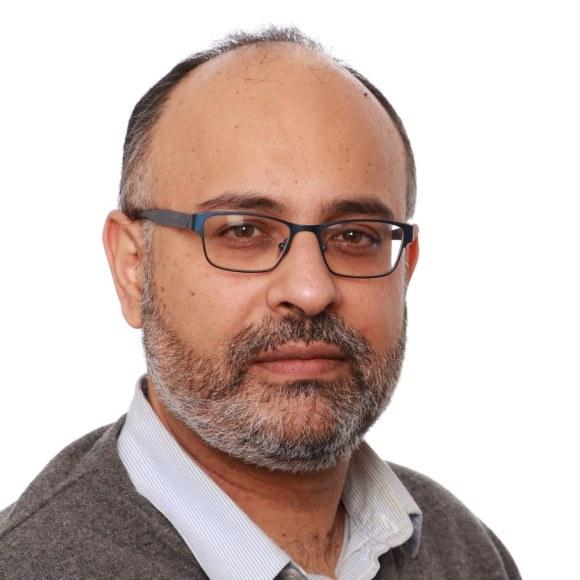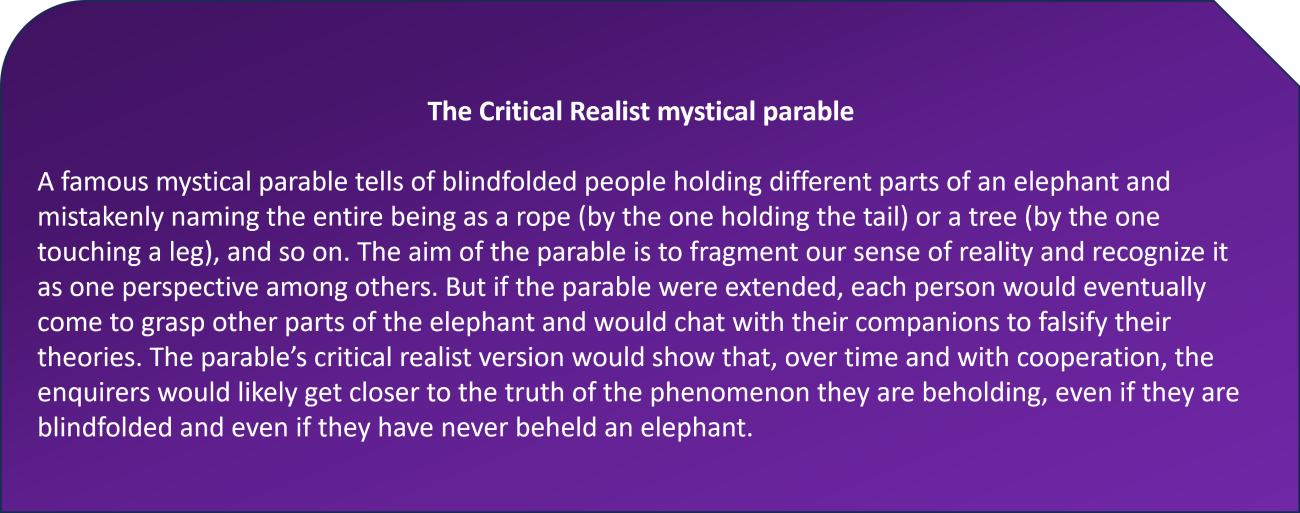
This planning project prepared a strategic plan for the global philanthropy, Templeton Religion Trust (TRT), to invest in the study of mysticism over the coming five years. The planning process (2023-24) built on a popular upsurge of interest, renewed academic engagement, and the continuing legacy of mystics in all religious traditions to engage scholars worldwide and conduct an extensive conceptual review of the field. The resulting strategic plan for a Program in the Study of Mysticism (PRISM) was submitted in early 2024 to TRT, which is now considering how to proceed with grant-making activities in the field.
The planning grant resulted in:
- Strategic plan: a multi-year approach to refresh the field of mysticism studies
- Conceptual white paper: a post-critique intellectual foundation
- Literature review: a post-critique survey of comparative mysticism studies
- Background papers: reviewing mysticism in the world's five major religions
- Meetings: generating scholarly momentum for studying mysticism with partners
- Research: open-access journal special issue on a critical realist approach
Tausta
In the backdrop of sweeping secularization of the academy over the past 70 years, the study of religion has largely emphasized beliefs, doctrines and performative rituals. Additionally, a wave of critical theory destabilized and historicized the categories that theologians and scholars of religious studies long worked with, including mysticism. Experiential dimensions of faith, religious feeling, and mystical union or immediacy were often brushed aside in the process , although these have long transformed both individuals and entire societies. Yet, just in the past decade or so, we are witnessing an inflection point as people turn once again to appreciate experiences of mystery, altered states of consciousness, and individually centered spiritual practices. Indeed, throughout history countless people have experienced a not-fully describable union with ultimate reality that is at once the heart of religion and the least understood aspect of it. Over the last decade the academy has also rediscovered mysticism in a post-critique wave which recognizes that mystics do not live only in dusty books or on lonely mountain tops. Rather, they were simply hidden from view by theoretical biases. Mystics have always written beautiful poetry, expounded lasting philosophies, healed nature, cured illnesses, and even negotiated world peace. They have existed in all religious traditions and across them. And they continued to do so today in ways we need to explore further. In fact, researchers now have access to new methods and theories that can significantly enhance our understanding of mystical practices, the realities that mystical accounts point to, and the significance they have in contemporary lives around the world.
Despite this, the fact is that we know very little about contemporary mysticisms in their culturally embedded contexts. We need more rigorous understanding about whether and how mysticisms can lead to more spiritual information, contribute to more individual and collective spiritual growth, and accrue more social benefits.
Tavoite ja tehtävät
Strategic plan
Research into transcendence, union, and transformation of consciousness
Discovering new information, understanding social consequences of religion, and exploring spiritual growth are precisely the three dimensions in which Templeton Religion Trust has operationalized the philanthropic vision of Sir John Templeton. Sir John has been referred to as the “Tennessee mystic,” in part because of the deep interest in mystical union. Indeed, mystical characteristics such as humility in the face of the unknown, unlimited love, and a panentheistic tension between immanence and transcendence of divinity resonated closely with him.
Inspired by Sir John Templeton’s critical realist approach to religious experience and mysticism, the strategic plan for PRISM is based on five values: (1) data driven, seeking to build falsifiable theory from the ground of evidence, (2) contemporary-focused, albeit historically rooted; (3) globally spread and across religions, but with local, comparable studies; (4) culturally embedded and contextualized; and (5) rigorously multi-disciplinary.
PRISM aims at a multi-disciplinary portfolio of projects and program core activities. To strategically focus efforts, PRISM is expected to concentrate on the social sciences and humanitiesat this stage. This emphasis arises out of expert consultations, where a clear gap has been indicated in this domain. To further concentrate impact, PRISM will focus over the coming five years on the five major religious traditions – Hinduism, Buddhism, Judaism, Christianity, and Islam – whose adherents account for over 75% of the world’s population. Given increasing flexibility in modern religious “affiliation,” PRISM also will map mystical elements reaching out from – and often in institutional tension with – the five traditions, i.e., de-racinated or de-territorialized accounts, as well as new spiritualities.
The PRISM strategy dovetails with TRT’s mission of enriching the conversations around religion with a goal of re-placing mysticism in the study of religion. The strategy will work toward this goal over the coming five years by way of three objectives: generate information, galvanize expertise, and stimulate interest.
The five-year strategy (January 2025 – December 2029) seeks to work for these objectives by way of competitive project grant-makingas well as a program coreto form an integrated program that amounts to more than a cluster of projects. This core will involve conceptualizing to theorize mysticism, convening scholarly expertise on common platforms, and communicating widely to attract further scholarly and public interest.
Vaikuttavuus
PRISM envisions an investment in research, institutional momentum, and stimulation of popular interest in the rigorous and scientific study of mysticism to re-place this topic in the field of religious studies. Seeking to establish a self-sustaining network of expertise, the proposed Program in the Study of Mysticism (PRISM) will engage leading scholars and institutions around the world and across religious traditions on mysticism, while also processing insights from new research and communicating them effectively to the public.
Rahoituslähde
Koordinoiva organisaatio
Tampere research group on Religion and Society (TRELIS)
Projektiin kuuluvat henkilöt
Ali Qadir
professori Ali Qadir
Ali QadirPartnerit
A planning meeting with some experts was organized in Tampere on October 14, 2023.
Institutions that have been closely involved with developing the program in detail, and the specific topics of discussion in addition to general advice on PRISM:
- Ruusbroec Institute, University of Antwerp (Belgium): peace and action in modern public mysticism across faiths
- Faculty of Theology and Religious Studies, University of Helsinki (Finland): mystical language of ineffability from theory to practice
- Emergent Phenomenology Consortium (France and USA): developmental psychology and emergence of mystical experience in cross-faith, meditative practices
- Center for Advanced Studies in Humanities and Social Sciences- Alternative Rationalities and Esoteric Practices from a Global Perspective, University of Erlangen (Germany): mysticism and the transmission of legitimized practices in esoteric circles
- RelBib online library of religion, Tübingen University (Germany): creating a searchable database of scholarly and popular resources on mysticism
- Department of Jewish Thought, Hebrew University of Jerusalem (Israel): mysticism across religious traditions and institutions
- St Thomas Aquinas Pontifical Institute (Italy): mysticism, psychedelics, and nondualism as both philosophy and experience
- Humanities & Social Sciences, Lahore University of Management Sciences (Pakistan): mysticism and the transgression of gender and cultural norms
- Centre for Aesthetics, Religion and Culture, Universitat Pompeu Fabra Barcelona (Spain): mysticism against the grain in art and philosophy
- Study of Religions, Södertörn University (Sweden): mysticism and the birth of modern, spiritual secularism
- Religious Studies Program, Fribourg University (Switzerland): from mystical experience to loving humanism in aid of the most vulnerable
- Buddhist Tzu Chi Foundation (Taiwan and Indonesia): mysticism and ecology
- Muhyiddin Ibn Arabi Society (UK): worlds and words in mystical journeys
- Department of Middle Eastern Studies, Michigan State University (USA): in the presence of sanctity, appreciating how shrine culture affects mystical experience
- Pacifica Graduate Institute (USA): expanding hermeneutic categories to understand mysticism at the margins of consciousness
- School of Religion, University of Southern California (USA): metaphorical richness of the Real to reorient epistemologies of mysticism
- Untamed, Film Production Company (USA): making a feature film on mystics in society
- Think Theory Communications Group (USA): communicating mysticism
Additional consultations were held on PRISM with:
- Regis College and Toronto School of Theology (Canada)
- Dominican University College (Canada)
- Program in Religion, Carleton University (Canada)
- Donner Institute for Religious and Cultural History, Åbo Akademi (Finland)
- International Centre for Spiritual Studies, Amrita Vishwa Vidyapeetham University (India):
- Centre for Religious Studies, Bruno Kessler Foundation (Italy)
- Department of Jewish Thought, Ben Gurion University of the Negev (Israel)
- Applied Spirituality research centre, Southeast Technological University, Dublin (Ireland)
- Protestant Theological University (Netherlands)
- Psychedelic, Religious, Self-transcendent and Mystical experiences Lab, Leiden University (Netherlands)
- Centre for the Study of Gender and Culture (Pakistan)
- Institute of Political Sciences, University of Warmia and Mazury (Poland)
- Department of Musicology, University of Cambridge (UK)
- Centre for Catholic Studies, Durham University (UK)
- Sir Alister Hardy Archives, University of Wales Trinity St. David (UK)
- Religious Studies, Rice University (USA)
- Institute for Research on Unlimited Love (USA)
- Institute for Studies of Religion, Baylor University (USA)


